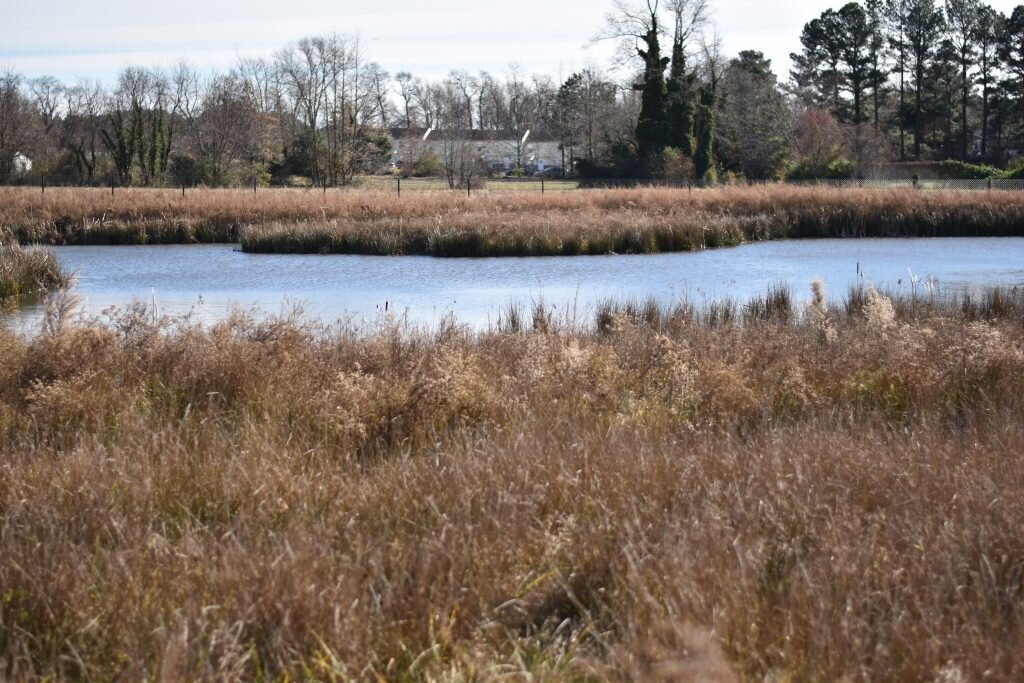
JOSH DAVIS/BAYSIDE GAZETTE
Berlin Planning Director Dave Engelhart cited stormwater as one area of concern addressed during a recent environmental conference in Cambridge. The town sent a large contingency to the meeting, billed as the first of its kind in the United States.
By Josh Davis, Associate Editor
(Nov. 29, 2018) The Town of Berlin continued its progressive approach to governing last week by sending representatives from its planning, economic development and water resources departments to the first Maryland Climate Change Leadership Academy.
Sponsored by the Maryland Department of Natural Resources and University of Maryland Center for Environmental Science, the conference was billed as “the nation’s first state-sponsored Climate Change Academy to help local governments, critical infrastructure organizations and state agencies effectively plan for and implement climate change initiatives.”
Berlin Planning Director Dave Engelhart, Economic and Community Development Directory Ivy Wells, Town Administrator Laura Allen and Water Resources Plant Operator Megan Pfaller attended the academy at Chesapeake College’s Cambridge Center. Wells said the Berlin had the largest municipal representation in the state.
Engelhart said the academy offered “lots of things for all of us to keep our eye on and possibly worry about in the future.”
The topic of stormwater piqued his interest, he said.
“They even took us around to all the stormwater improvements they’ve been making on campus, with the … river there that runs along the side,” he said.
Engelhart said it also was impressed upon him to look more into “green” buildings in the town. He mentioned the LEED (Leadership in Energy and Environmental Design) certification overseen by the U.S. Green Building Council, and said certified buildings produce lower emissions and have the least possible energy use.
“The biggest carbon deposits are made by energy and transportation. That was one thing they kept stressing. If we can make those things better in our area … then maybe we have an impact,” Engelhart said.
“We hear the word(s) ‘carbon footprint’ all the time, but … the one thing they talked about that to me was amazing was the amount of metric tons of carbon that get put into the atmosphere,” he continued, adding the annual impact is equivalent to “a railroad train full of coal cars going around the earth 56 times in a year.”
“That puts it in perspective,” Engelhart said.
Wells discussed the façade grant program she oversees for small businesses in Berlin.
“I’m looking into, in the future, offering a green infrastructure grant for people who want to redo their rooms – I’m in love with green rooms,” she said. “I know it may not be feasible, but where there’s a will there’s a way.
“Especially in the historic district, everything was made the way it used to be, and now we need to start thinking about how we’re going to build and rebuild the green way,” Wells added.
Engelhart said the academy resumes in January.
“It’s a big program. We’ll have three more conferences we’ll need to go to and a lot of testing to pass to get the first-ever certifications in, they say, the United States,” he said. “I think it’s going to be a lot of work, but I think it’s going to be beneficial to the town and, moving forward, maybe with some changes to our code to ensure we’re doing all we can … to be greener and sustainable.
“Any maybe we can continue to be a model for some other people like we have [been] in all the other areas,” Engelhart added.
Mayor Gee Williams praised town staff for doing its part.
“Climate change, itself, cannot be changed overnight,” he said. “I think the emphasis here is in being better prepared [and] … rather than just stand by and wring our hands, that we know where we are likely to be impacted and how much can be prepare for, and then how quickly can we recover.”
